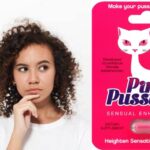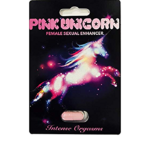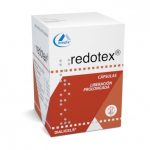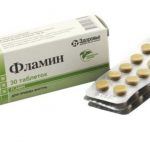Pink Pussycat Pills: Ingredients, Uses, Dosage, Side Effects, Reviews
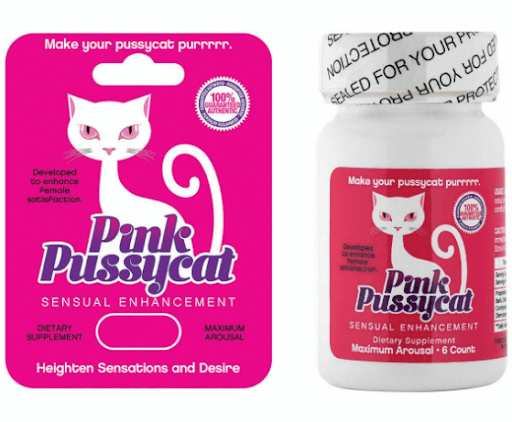
What is Pink Pussycat pill?
Pink Pussycat pills are over-the-counter pills promoted as an all-natural enhancement supplement that creates heightened sensitivity to touch and warmth, greater lubrication, and increase satisfaction for women. It works by increasing blood flow to the female genitals.
How to use Pink Pussycat pills
According to the promoters of this pill, you should take 1 Capsule of Pink Pussycat one hour before sexual activity with at least 16 ounces of water. Effects are activated when physical stimulation occurs and can last up to 72 hours. The makers warn that everyone’s metabolism is different, and women should consult their doctors before using the product.
What are the ingredients in Pink Pussycat pills?
Below are the ingredients in pink pussycat sex pills and their possible side effects:
- Goji extract: these berries are often sold powdered or dried. Plus, they’re added to many supplements and juice blends. Goji extract may trigger an allergic reaction in rare cases, especially in individuals who are allergic to other fruits. Additionally, goji berries extract may interact with certain drugs, including blood thinners and medications for diabetes or high blood pressure. What’s more, you should exercise caution if you’re pregnant, or planning to get pregnant as they contain betaine, a compound that may harm fetal health.
- Deng sen extract: while many supplements purport to rely on herbal ingredients such as deng sen extract, it can cause some side effects, including itching, upset stomach, and reduced appetite. There is some concern that it might also cause drowsiness, dizziness, and a blood condition called thrombocytopenia.
- Atractylodes: is one of the most famous tonic herbs from China. In traditional Chinese medicine (TCM), it is said to tonify the blood and spleen. Atractylenolide, a chemical found in atractylodes, seems to be safe when taken in appropriate amounts (1.32 grams daily) for a short period of time (up to seven weeks). It can cause nausea, dry mouth, and leave a bad taste in the mouth.
- Cinnamon bark: the oils found in cinnamon bark are thought to reduce spasms, reduce gas (flatulence), and also increase blood flow. However, it can be irritating to the skin and mucous membranes, including the stomach, intestine, and urinary tract. It can cause side effects such as diarrhea, vomiting, dizziness, drowsiness, and others.
- Cornus (Dogwood): people use American dogwood for headaches, fatigue, fever, and ongoing diarrhea and to increase strength, appetite, and as a tonic. But there is no good scientific evidence to support these uses. Reported side effects include nausea and vomiting.
- Cuscuta (Dodders): is a parasitic plant. Its seed is commonly used as a tonic for liver and kidney in herbal medicines. Dodder powder is possibly safe when taken by mouth in doses of up to 2 grams daily for up to 8 weeks. There isn’t enough reliable information to know if higher doses of dodder are safe. It might cause side effects such as stomach upset and diarrhea.
- Dang Gui (Female Ginseng): is used for menstrual cramps, premenstrual syndrome (PMS), and menopausal symptoms. It is also used orally as a “blood purifier”; to manage hypertension, infertility, joint pain, ulcers, “tired blood” (anemia), and constipation; and in the prevention and treatment of allergic attacks. However, it is possibly safe for adults when taken short term because it can cause skin to become extra-sensitive to the sun. This might increase the risk for sunburn and skin cancer.
- Licorice: is an herb that grows in parts of Europe and Asia. The root is used as medicine. Licorice root contains glycyrrhizin, which is also called glycyrrhizic acid. Glycyrrhizin can cause adverse effects when eaten in large quantities.
- Cordyceps Sinensis (Caterpillar fungus): the caterpillar fungus is mainly used as a tonic to increase strength or for rejuvenation after a long serious injury. Some also believe that the fungus can also reduce stress. Side effects include Increased symptoms of autoimmune diseases, slow blood clotting (increased risk of bleeding in people with bleeding disorders and Increased risk of bleeding during surgery.)
- Panax Ginseng (Asian Ginseng): panax ginseng is a plant that grows in Korea, northeastern China, and far eastern Siberia. People use the root to make medicine especially improvement of sexual function in sexual arousal domain. The most common side effect is trouble sleeping (insomnia). Less commonly, people experience menstrual problems, breast pain, increased heart rate, high or low blood pressure, headache, loss of appetite, diarrhea, itching, rash, dizziness, mood changes, vaginal bleeding, and other side effects.
What are the side effects of Pink Pussycat pills?
A recent analysis by the US Food and Drug Administration revealed that Pink Pussycat contains sildenafil, the active ingredient in the FDA-approved prescription drug Viagra, used to treat erectile dysfunction. FDA’s approval of Viagra is restricted to use under the supervision of licensed health care professionals. This undeclared ingredient may interact with nitrates found in some prescription drugs, such as nitroglycerin, and may lower blood pressure to dangerous levels. People with diabetes, high blood pressure, high cholesterol, or heart disease often take nitrates.
Pink pussycat sex pills can also produce very unpleasant side effects and disruptive reactions. Always discuss with your physician before using pink pussycat sex pills so that he or she can alert you to any potentially dangerous side effects to look out for. Tell your doctor about other medications you might be taking to make sure they won’t react negatively with your pink pussycat pills. Your doctor may tell you that other substances, such as alcohol, could affect the strength and safe use of your pill.

